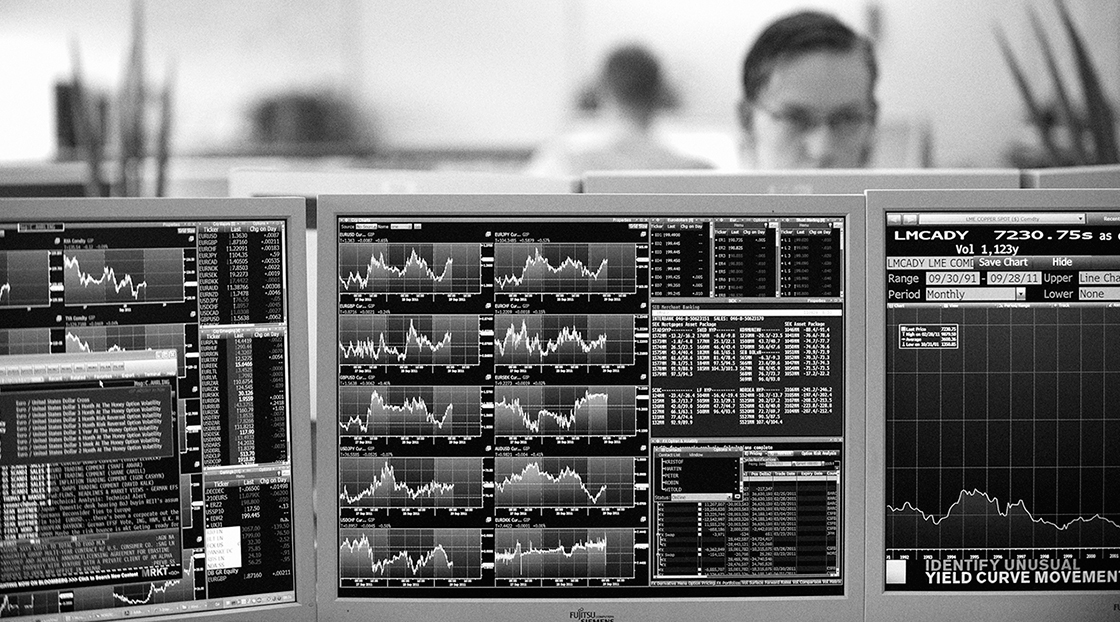Remember the long-term perspective when the return fluctuates

This year started with fluctuating investment markets, which resulted in some losses on shares. This has affected your return in PFA Plus. Fortunately, the tone of the market has changed, and there are indications of increased stability throughout the rest of the year. At the same time, it is important to remember that pension savings all through an entire working life is a matter of a long-term return, and that a few bumps on the way are inevitable.
The investors have had a turbulent start to the investment year 2016. There have been large fluctuations, which made it difficult to profit from purchase and sale of securities such as shares and bonds. Price drops at the stock exchanges, in particular during the first half of Q1, resulted in negative returns on the market rate plan PFA Plus. Since then, the situation has however stabilised.
This is explained by Rasmus Bartholdy, one of PFA’s investment experts.
“The year started with a widespread fear of recession in the USA. This caused the investors to sell off their shares and buy more bonds. Therefore, bonds performed well, while the global share market dropped by 15 per cent up until mid-February. Hereafter, the tone changed in step with an increase in oil prices and improved key figures from the American economy. In total, Q1 ended with a respectable return for the customers" Rasmus Bartholdy says.
For you as a customer, this is reflected in the more cautious Profile A, which includes a large amount of bonds, generating a better return than profile D, which includes a large amount of shares. Profile A which has 0 years to retirement resulted in a return of 1.4 per cent, and profile D which has 30 years to retirement provided a negative return of 2.1 per cent.
Find your investment profile and your return here:
Q1 2016 returns for PFA Plus incl. 5 per cent PFA CustomerCapital
| Lowest risk | <------------ | ------------> | Highest risk | ||
|---|---|---|---|---|---|
| Profile A | Profile B | Profile C | Profile D | ||
| Years | 30 years | 0.8 % | -0.2 % | -1.1 % | -2.1 % |
| until | 15 years | 1.0 % | 0.4 % | -0.1 % | -0.7 % |
| retirement | 5 years | 1.3 % | 0.9 % | 0.4 % | 0.0 % |
| 0 years | 1.4 % | 1.0 % | 0.6 % | 0.2 % |
Prospect of moderate economic growth
From now on, there are indications of increased stability in the large economies, for instance in the USA, in China and Europe. This means that the expectations for shares and certain types of bonds are slightly more positive compared with the first three months of the year.
“The latest key economic data indicate that the risk for a recession in the USA is reduced, and that we can anticipate moderate economic growth. The greatest risk is that the central bank of the USA, the Fed, raises the interest rates too quickly or that key figures disappoint. In Europe, a moderate growth is also expected, which is stimulated by the European Central Bank that lowered the interest rate and is currently purchasing bonds,” Rasmus Bartholdy says.
He adds that if Great Britain chooses to leave the EU this summer, it may however result in turmoil in the share market and lead to losses on British and other European shares.
Despite fluctuations in the investment markets, PFA Plus customers do not need to take any steps. PFA’s consumer economist Carsten Holdum explains that there are two reasons for this.
Pension is a long-term investment
“As investing in shares generally generates better long-term returns, the main rule is that you need to look at the long-term perspective and trust the investment profile that you have selected. Generally, it is not a good idea to change to an investment profile with lower risk during bad times, as it can be compared to selling shares when the markets are at a low,” says Carsten Holdum, and continues:
“In recent years, the financial markets have been characterised by a continuous positive trend, and then it is easy to forget that periods of falling prices and losses are quite normal when saving up in the market rate environment. It is not possible to create strong long-term returns and at the same time make sure that they remain stable. That is the very difference between investing in shares and bonds,” Carsten Holdum explains.
Facts:
Recession: Negative growth in a country’s economy measured by gross domestic product for at least two successive quarters.
Market rate plan: The funds are invested on market terms in shares, bonds and other assets. Return and loss of the investments are continuously accrued to your savings.
A, B, C or D: PFA Plus offers four different investment profiles, which you can read about by clicking the link below. Here you may also try PFA's investment guide.
Log in and find out which profile suits you best
PLEASE REMEMBER: You should choose an investment profile based on your financial wishes and needs and not on whether the prices in the financial markets go up or down.